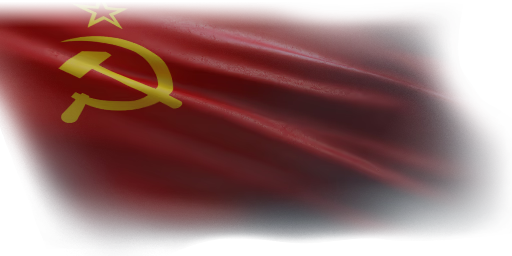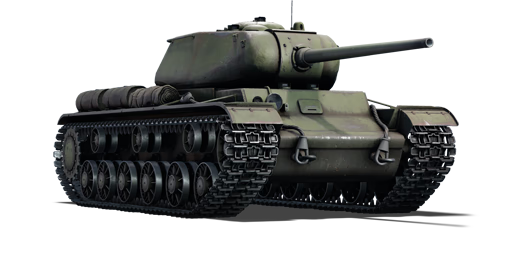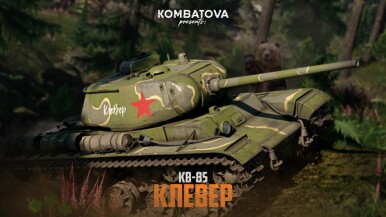



The KV-85 is the heavily modified sixth variant of the KV-1 heavy tank family. It was a stopgap design comprised of a modified KV-1S hull connected to an IS-85 (IS-1) turret and mounted with an 85 mm D-5T tank gun. By the middle of the Second World War, all existing KV-1 variants were considered obsolete. Its firepower was less effective than it had been in the early war. To fight the increasingly strong German tanks, the Soviet Union required a new heavy tank with enhanced firepower. By 1943, there were 21 heavy tank designs, but they were all cancelled due to assessments of weak firepower and poor mobility, which cost the Red Army dearly. The final KV-1 variant, the KV-1S, exacerbated things by being a substantially inferior tank that attempted to balance two opposed attributes: armour and speed. Kotin divided his TsKB-2 department in two in order to speed up the development of heavy tanks. The first team chose to upgrade the KV-1S variant, while the second began work on the IS-85 (later renamed IS-1), a considerably better balance of speed and armour. The original KV-85 design was substantially different from the one that was ultimately adopted. It was a slightly modified KV-1S with a forcibly mounted 85 mm D-5T tank gun in a KV-1S cast turret. There appears to have been only one prototype, which was found unsatisfactory. This is probably owing to the shortage of turret space. Fortunately, the IS-85 turret was available at this point, but not the IS hull. Due to severe technical delays in IS-85 manufacturing as well as urgent needs for more heavy tanks with heavier weaponry, a new tank was created by modifying an existing KV-1S chassis and putting an IS-85 turret on top. The KV-85 was accepted for service by the State Defense Committee on August 8th, immediately after trials, resulting in 148 KV-85s being constructed as a stopgap from September to December at Chelyabinsk. The fifth crew member (the radio operator) was no longer required due to increased demand for larger ammunition racks (70 rounds) and the size of the gun breech.
Introduced in the Closed Beta Test for Ground Forces before Update 1.41, the KV-85 is a unique heavy tank with significantly increased firepower when compared to the standard variants of the KV-1 heavy tank family. However, when faced with foes of its rank, the KV-85 armour will provide limited protection against other hostile vehicles. With only 75 mm front and 60 mm side armour, practically all adversaries and ammunition will pass through with ease. In comparison to other heavy tanks on the market, the KV-85's handling and combat style is very similar to the IS-1, making it an excellent jack-of-all-trades heavy tank: fast rate of fire, lighter weight, adequate mobility, fast turret traverse speed, fast targeting, good ammunition penetration, and explosive filler. Despite its limits, a skilled and experienced player of this vehicle may regularly tip the balance in their favour regardless of the battlefield, making the best use of the firepower while limiting the exposure of vulnerabilities at the same time.
| Ammunition | Type | Armor penetration (mm) at a distance: | |||||
|---|---|---|---|---|---|---|---|
| 10 m | 100 m | 500 m | 1000 m | 1500 m | 2000 m | ||
| APHE | 148 | 143 | 126 | 106 | 90 | 77 | |
| HE | 19 | 18 | 17 | 16 | 15 | 14 | |
| APHEBC | 135 | 133 | 124 | 114 | 104 | 95 | |
| Belt | Belt filling | Armor penetration (mm) at a distance: | |||||
|---|---|---|---|---|---|---|---|
| 10 m | 100 m | 500 m | 1000 m | 1500 m | 2000 m | ||
| AP-I/API-T | 13 | 12 | 7 | 3 | 2 | 0 | |












Mobility | |
|---|---|
Protection |
|---|
Firepower | |
|---|---|
